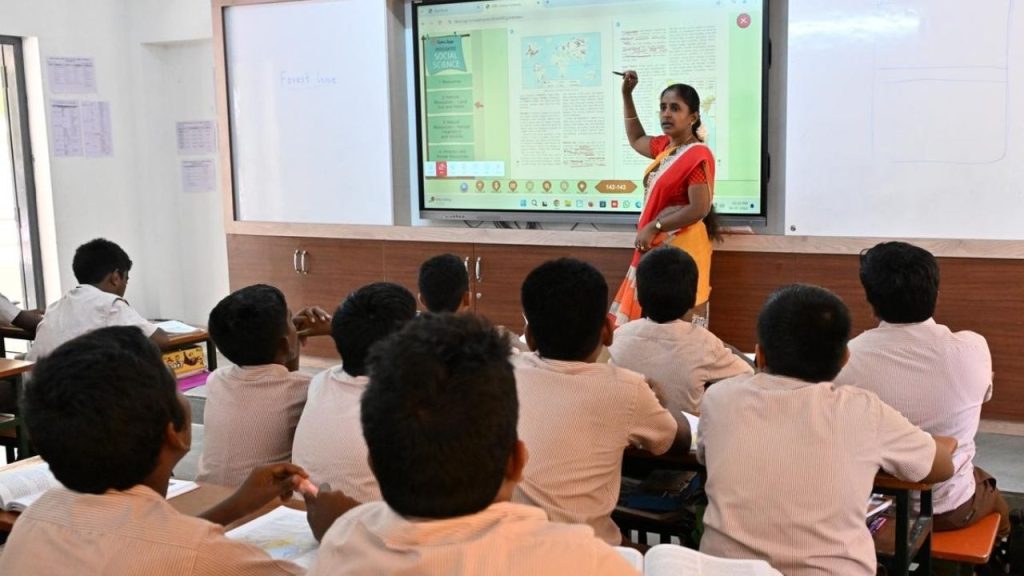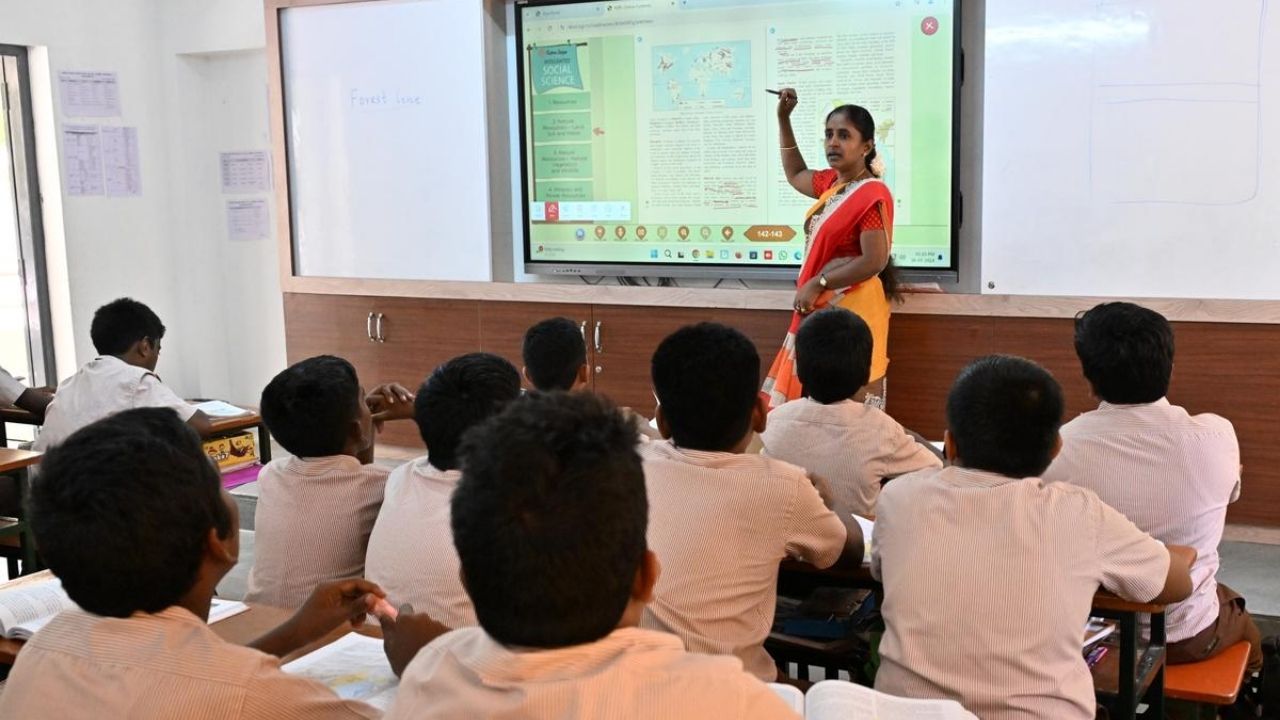The Odisha state government has initiated a significant enforcement action against private educational institutions operating without official approval. In a firm directive, the School and Mass Education Department announced that Odisha private schools lacking a mandatory Certificate of Recognition (CoR) will face substantial financial penalties, a move aimed at enforcing national school education standards and ensuring student safety.

Odisha Govt Cracks Down on Unrecognised Private Schools
For readers seeking a quick overview, the table below summarizes the core aspects of the government’s new policy.
| Key Fact | Detail/Statistic |
| Mandatory Requirement | All private schools (Class 1-8) must obtain a Certificate of Recognition (CoR). |
| Financial Penalties | A fine of up to ₹1 lakh ($1,200 USD), plus ₹10,000 ($120 USD) for each day of continued violation. Government of Odisha, School and Mass Education Department |
| Affected Institutions | Official estimates suggest several thousand schools across the state are currently operating without a valid CoR. |
Government Mandates Compliance with Heavy Fines
The directive, issued by the Odisha School and Mass Education Department, marks one of the state’s most stringent efforts to regulate its burgeoning private education sector. According to the official notification, schools continuing to operate without the Certificate of Recognition will be subject to a one-time fine of up to ₹1 lakh and an additional daily penalty of ₹10,000 until they cease operations or secure the necessary approval.
This enforcement is grounded in the provisions of the Right of Children to Free and Compulsory Education (RTE) Act, 2009, a national law that sets minimum norms for all elementary schools in India. “The objective is not to shut down schools, but to ensure every institution provides a safe, effective, and legally compliant learning environment for children,” said a senior official from the department in a statement. “Adherence to RTE norms is non-negotiable for the welfare of our students.”
The government has repeatedly urged unrecognized schools to complete the application process through its official online portal. However, officials noted that a significant number of institutions have failed to comply, prompting this latest crackdown.
The “Why” Behind the Crackdown on Odisha Private Schools
The push for universal recognition addresses long-standing concerns over the quality and safety of many budget private schools that have proliferated across the state. The Certificate of Recognition serves as a crucial benchmark, verifying that a school meets essential criteria mandated by the RTE Act.
What is Required for Recognition?
To obtain a CoR, a school must demonstrate compliance with a comprehensive set of standards, including:
- Adequate Infrastructure: Minimum requirements for classroom size, sanitation facilities, drinking water, and a playground.
- Teacher Qualifications: All teachers must possess the minimum academic and professional qualifications prescribed by the National Council for Teacher Education (NCTE).
- Safety Measures: The school premises must be secure and possess valid fire safety and building safety certificates.
- Student-Teacher Ratio: Adherence to the prescribed ratio of teachers to students to ensure quality instruction.
“Many of these unrecognized schools operate out of rented buildings with poor infrastructure and employ underqualified teachers,” stated Anil Pradhan, an education rights activist based in Bhubaneswar. “This not only compromises the quality of education but also poses a significant safety risk to the children attending them.”
Concerns from School Associations and Parents
While the government’s move is aimed at improving school education standards, it has been met with apprehension from school management bodies and parents. Representatives of private school associations argue that many smaller, budget-friendly schools find it difficult to meet the stringent infrastructural norms, particularly land requirements, in urban and semi-urban areas.
“We support the goal of quality education, but the government must also consider the practical challenges,” said a spokesperson for the All Odisha Private Schools’ Association. “Many schools need more time and perhaps financial support to upgrade their facilities. An abrupt closure will displace thousands of students and staff.”

Parents with children enrolled in these institutions now face uncertainty. Many chose these schools for their affordability and proximity. “If my son’s school is forced to close, the nearest recognized private school is much more expensive and farther away,” expressed one concerned parent from Cuttack. “We are caught in the middle, worried about the continuity of our children’s education.”
As the deadline approaches, the focus shifts to whether these thousands of unrecognized schools will manage to comply or if the state is headed for a major disruption in its private education landscape. The government maintains that district education officers will facilitate the transfer of affected students to nearby recognized schools, but the logistical challenges of such a large-scale transition remain a significant concern for all stakeholders involved.
Sundargarh College Bans ‘Odd Hairstyles’ for Students, Enforces Strict Entry Rules
Odisha to Reinstate Exam/Application Fees: Refundable for Candidates Who Appear
B.Ed Qualified Candidates Should Be Appointed as Junior Teachers, Orissa High Court States
FAQs
1. What is the Certificate of Recognition (CoR)?
The CoR is a mandatory certificate issued by the state government confirming that a school complies with the minimum infrastructure, safety, and academic norms laid out in the Right to Education (RTE) Act, 2009.
2. What happens to students if their school is shut down for non-compliance?
According to the School and Mass Education Department, local education authorities are responsible for ensuring that any student displaced by a school closure is admitted to a nearby recognized school.
3. Why have so many schools been operating without recognition?
Reasons vary, but common challenges cited by school operators include difficulty in meeting stringent land and infrastructure requirements, financial constraints, and complex bureaucratic processes for obtaining the necessary clearances.





